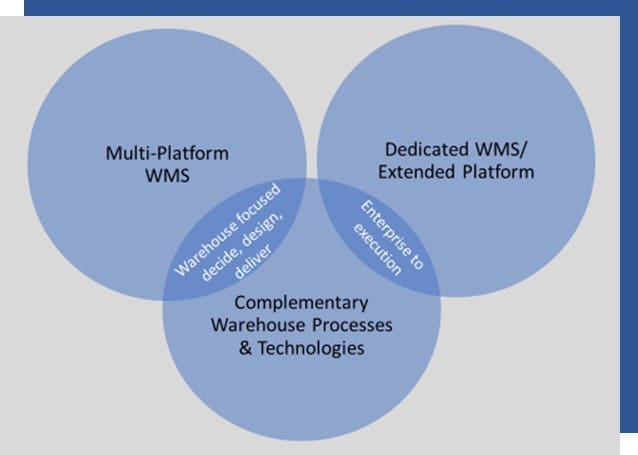 I am wrapping up ARC Advisory Group’s research on WMS Consulting Specialists- independent consultants that derive a large percentage of their business from WMS consulting and implementations. I had a very vague understanding of the WMS consultant landscape prior to engaging in this research. I knew a number of individuals and companies, but didn’t really have a contextual framework for understanding the world in which they operated and how they differed from one another. My understanding has grown considerably from this project. I don’t claim to be an expert on the capabilities of each firm, but I think I can provide some valuable perspective on the market and some key criteria to use while evaluating your options.
I am wrapping up ARC Advisory Group’s research on WMS Consulting Specialists- independent consultants that derive a large percentage of their business from WMS consulting and implementations. I had a very vague understanding of the WMS consultant landscape prior to engaging in this research. I knew a number of individuals and companies, but didn’t really have a contextual framework for understanding the world in which they operated and how they differed from one another. My understanding has grown considerably from this project. I don’t claim to be an expert on the capabilities of each firm, but I think I can provide some valuable perspective on the market and some key criteria to use while evaluating your options.
Stage in Process, Project Scope, and Key Criteria
Decide, Design, and Deliver
Determining the best WMS solution for your organization can be a daunting process, especially if your organization is willing to accept considerable change. Detailed knowledge of business processes, technology options, and the strengths and weaknesses of these technologies is essential to making an informed decision. But so is objectivity. WMS consultants that have relationships with multiple WMS suppliers and deep knowledge of these companies and their offerings are best suited for this type of consulting project. However, there may be a limited number of independent consultancies with a multi-platform WMS practice that also have the resources to support your organization through the WMS implementation and systems integration process. These organizations may also take a holistic approach to evaluating your warehousing needs, suggesting business process improvements, warehouse process redesigns, and the adoption of warehouse automation. Knowledge and skills related to process changes and complementary warehouse technologies can also be key criteria for a successful facility-wide project.
Enterprise to Execution
Some WMS consultancies have exclusive relationships or near-exclusive relationships with a given WMS supplier. These consultancies specialize in the technology of the given WMS vendor and very often have teams that specialize in other modules or offerings from the same vendor. These consultancies often specialize in the enterprise technology offering of a large ERP supplier or the platform and set of applications of a large best-of-breed supply chain management software provider. Warehouse operators with a predetermined WMS vendor are logically going to value the WMS consultancy’s depth and breadth of knowledge about the given WMS application and the ins and outs of the implementation and integration with the other offerings from this software supplier. Because there is a limited number of consultancies with available staff that are experts on WMS system implementations, these consultancies are in high demand from large global IT consultancies. The large IT consultancies obtain service contracts for a company-wide ERP implementation and sub-contract out the implementation of the WMS solution to the smaller WMS specialists. In fact, many large IT consultancies acquired smaller WMS and logistics technology consultancies to capture these resources exclusively for their larger projects. Accenture was the most notable, acquiring REPL Group and Blue Horseshoe in 2021, MacGregor Partners in 2022, and Inspirage at the end of 2022/beginning of 2023.
Warehouse Automation and Process Redesign
Finally, many WMS consulting specialists noted that the increased interest in adopting warehouse automation and robotics has contributed to the growth of their warehouse consulting and integration business. Very often these consultants facilitate the decision-making process, assisting the customer with determining the best options for them given criteria such as throughput, storage density, and desire for flexibility within the constraints of budget. Many of these consultants also assist with some integration of the WMS with automation interfaces. Lastly, many of these consultants have built their own software applications that extend the capabilities of the WMS vendors and integrate information with adjacent technologies and operations. These offerings enhance their relationships with their customers and extend their value proposition.
The stage of your project, the scope with respect to other enterprise functions and the geographic reach, and the need for consulting with respect to warehouse redesign and automation needs can be used as key criteria in determining the best consultants for your particular needs.

















